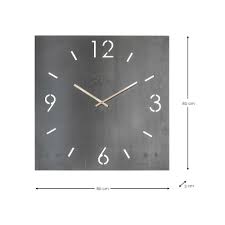
Introduction
Clocks are an essential part of modern life, governing our schedules, ensuring punctuality, and facilitating a sense of order in our daily routines. As society becomes increasingly fast-paced, the significance of accurate timekeeping is more relevant than ever. In a world where every second counts, understanding the various types of clocks and their evolution can provide insight into their enduring importance.
The Evolution of Clocks
The history of clocks can be traced back to ancient civilizations where sundials and water clocks were commonly used. Fast forward to the Middle Ages, mechanical clocks began to emerge, allowing for greater accuracy in timekeeping. The invention of the pendulum clock in the 17th century by Christiaan Huygens marked a revolutionary advancement, providing precision to within seconds. Today, clocks have evolved into a wide range of digital and smart versions that integrate with technology, showcasing the adaptability of timekeeping devices throughout history.
Types of Clocks and Their Uses
In contemporary society, clocks vary widely in design and functionality. Traditional analog clocks remain popular for their classic appeal, while digital clocks have gained widespread usage due to their ease of reading and multifunctionality. Smart clocks, which sync with smartphones and other devices, are increasingly common, facilitating better time management and offering features such as alarms, weather updates, and fitness tracking. Additionally, public clocks in city squares and railway stations serve not only as timekeepers but also as vital information points for the public.
The Future of Timekeeping
As technology continues to advance, the future of clocks will likely take on even more innovative forms. With the rise of smart home technology, integrated systems that manage all aspects of the home, including timekeeping, are becoming commonplace. Furthermore, the development of atomic clocks, which are the most precise timekeeping devices currently available, has implications not only for everyday clocks but also for GPS technology and global communication systems. As we move forward, the role of clocks may evolve but will remain a crucial part of our everyday lives.
Conclusion
The clock is more than just a device to tell time; it is a symbol of structure, efficiency, and the relentless march of progress in our society. With advancements in technology and ever-increasing demands on our schedules, the clock will continue to play an integral role in how we navigate our daily lives. Readers should recognise the significance of timekeeping devices and appreciate the evolution that continues to shape our experience of time.
You may also like

Discovering the Beauty and Culture of Norway

Exploring East Grinstead: History and Attractions
